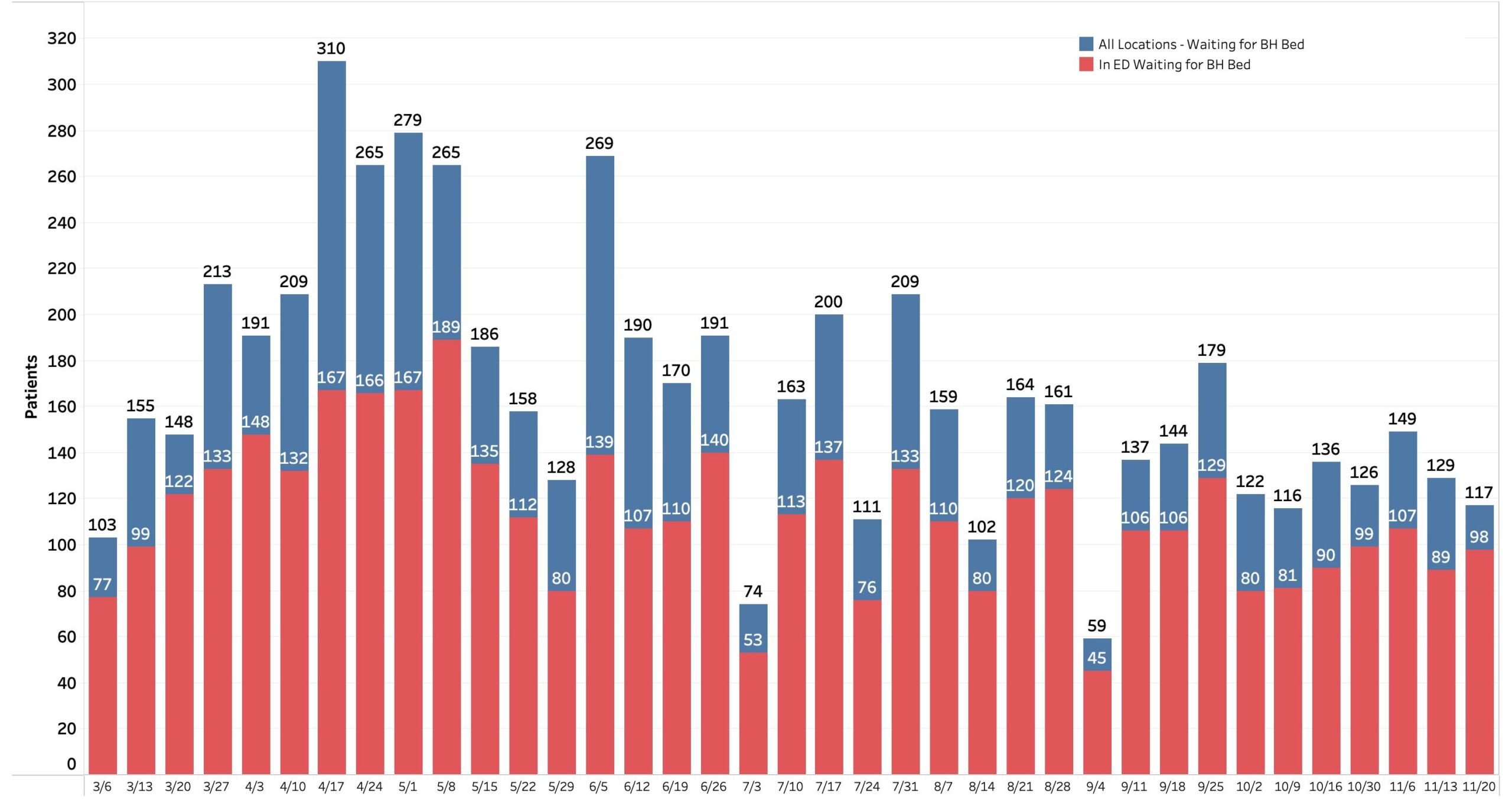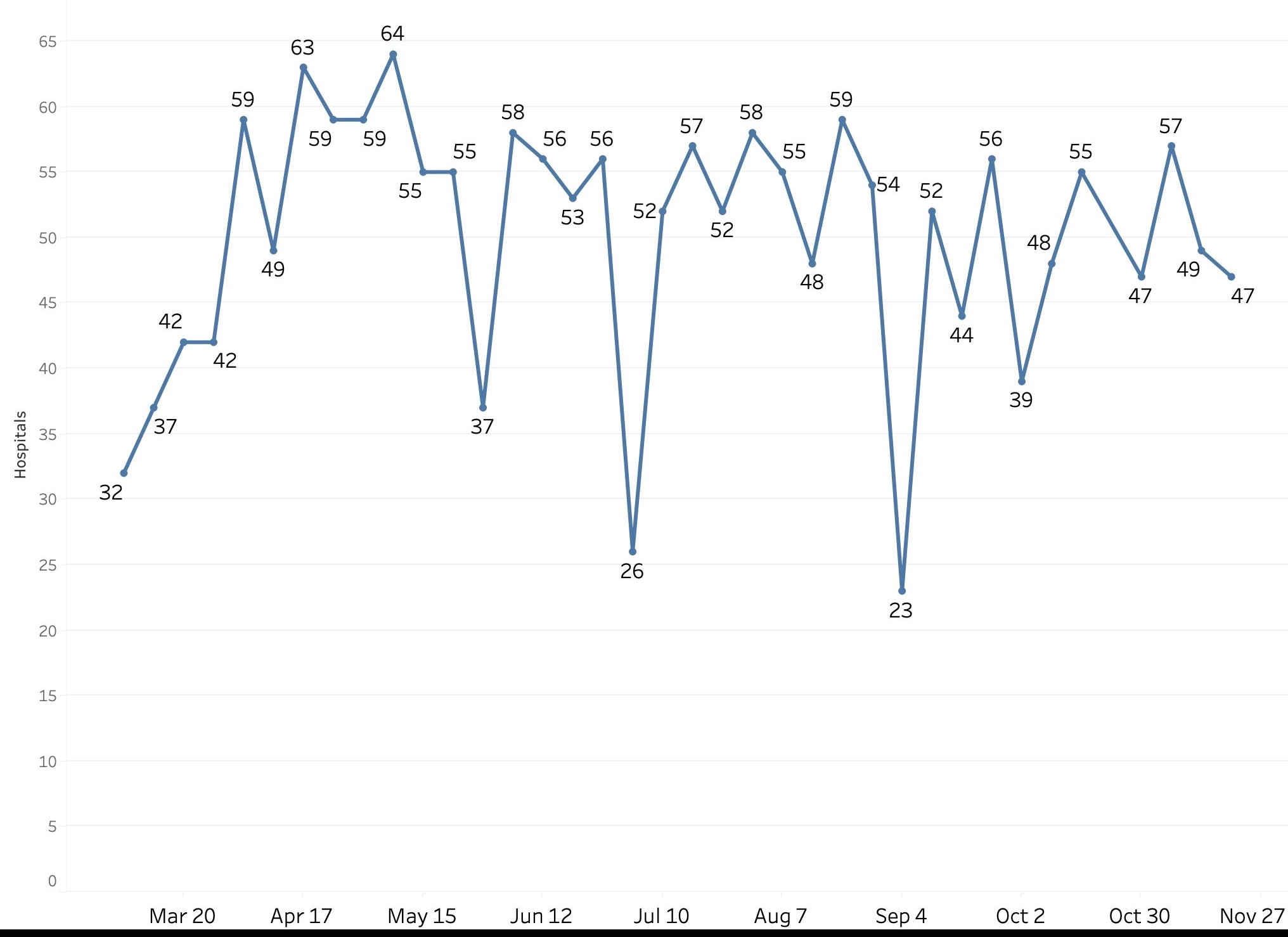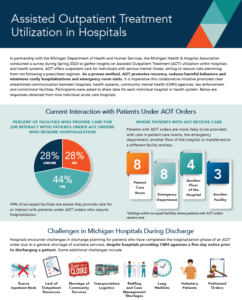Not All Wounds are Visible
On behalf of members, the MHA convenes a Behavioral Health Integration Council a minimum of four times per program year. Council members inform the policy and advocacy efforts that the MHA takes related to behavioral health issues in Michigan.
Assisted Outpatient Treatment Utilization Infographic
In partnership with the Michigan Department of Health and Human Services, the MHA conducted a survey during Spring 2023 to gather insights on Assisted Outpatient Treatment (AOT) utilization within hospitals and health systems.
AOT offers outpatient care for individuals with serious mental illness, aiming to reduce risks stemming from not following a prescribed regimen. As a proven method, AOT promotes recovery, reduces harmful behaviors and minimizes costly hospitalizations and emergency room visits. It is imperative this collaborative initiative promotes clear streamlined communication between hospitals, health systems, community mental health (CMH) agencies, law enforcement and correctional facilities. Participants were asked to share data for each individual hospital or health system.
Based on the survey results, the MHA created an infographic report that summarizes the strengths and gaps within the existing behavioral health system on AOT utilization. Findings will be used to inform the MHA’s policy and advocacy activities to advocate for improvements to the behavioral health system in Michigan.
Members with questions regarding AOT should contact Lauren LaPine at the MHA.
Behavioral Health Boarding Survey
The United States is facing a behavioral health crisis and Michigan is no exception. There are record numbers of behavioral health patients waiting in hospital emergency departments (ED) throughout the state for an available hospital bed. However, Michigan lacks the necessary number of behavioral healthcare workers and treatment facilities to meet the demand of patients needing inpatient care. Not only are behavioral health patients not receiving the care they need in an appropriate setting, but it causes a series of complex problems for hospitals, ranging from increased wait times for patients in the emergency department to inadequate reimbursement. The MHA aims to bring awareness to the issue and pursue legislation to ease the burden on member hospitals and health systems while getting behavioral health patients the care they need.
Boarding occurs when a behavioral health patient waits in an ED or another unit until a behavioral health bed is available. The MHA started collecting data in March 2023 on ED boarding on a weekly basis from member hospitals and health systems. Hospitals and health systems provide data on the number of patients waiting to receive a behavioral health evaluation and the total number of patients boarding in an ED awaiting an inpatient psychiatric bed.
The MHA will be sharing the data that is collected in aggregate on a weekly basis.
Data for Dec. 18 2023
|
Hospitals Reporting Behavioral Health Census Data |
Patients in an ED awaiting a Behavioral Health Bed | Patients in a hospital facility awaiting a Behavioral Health Bed | TOTAL number of patients awaiting a Behavioral Health Bed |
| 28 | 50 | 20 | 70 |
Number of Patients Waiting for a Behavioral Health Bed in Michigan Hospitals
Point in Time Survey of Michigan Hospitals

Hospitals Completing Behavioral Health Boarding Survey
Point in Time Survey of Michigan Hospitals

Should the survey be completed by a hospital or health system? Why is this important?
A separate survey response should be completed for each hospital in the health system (e.g., for seven hospitals within one system, seven separate surveys should be completed). Having each hospital within a health system complete this survey allows for varying demographics and trends within the data to be identified and accounted for. However, one individual can complete multiple surveys on behalf of several locations.
Who should be completing the survey?
Preferably emergency department (ED) directors or management coordinators. Other roles within the hospital with available data may also complete the survey on a weekly basis.
When should the survey be completed?
The survey should be completed once a week on Mondays.
What is the standard definition of boarding for psychiatric patients?
Boarding describes patients who are (1) awaiting an evaluation in the ED, (2) evaluated in the ED but not admitted, or (3) evaluated but spending extensive time in inappropriate locations – whether in the ED or in another equally unsuitable place – while awaiting voluntary or involuntary psychiatric hospitalization. Overall, boarded patients are NOT formally admitted, and they are NOT patients in an inpatient bed.
We have a separate psych ED. Should we include those patients in the survey?
Please include these patients within the survey response if they are either waiting for an evaluation or waiting for a behavioral health bed, whether they are in the general ED or psych ED.
Are patients who are in the process of a transfer considered a boarded patient?
No, please do not include these patients in the survey response.
At what point in the process of medical clearance should a person be ‘counted’ in the survey?
When a patient needs a behavioral health bed but no behavioral health bed is available.
Members with questions about the survey should contact Lauren LaPine. Members with media questions should contact John Karasinski.
Inpatient Behavioral Health Grant
The MHA issued a request for proposals in early 2023 for a $50 million competitive grant program for Michigan healthcare entities to expand access to pediatric inpatient behavioral health services. The funding was appropriated by the Michigan Legislature as part of the state fiscal year 2023 state budget with the goal to increase the number of beds available to care for pediatric psychiatric patients requiring inpatient hospitalization.
The MHA has granted funding to six institutions across five geographic regions of the state and anticipates these funds will be used to bring 110 inpatient beds online and expand behavioral health treatment services for pediatric patients.
The six organizations are as follows:
- HealthSource Saginaw
- Holland Hospital
- Memorial Healthcare
- Munson Healthcare
- Pine Rest Christian Mental Health Services
- Straith Hospital
The MHA appreciates the time and effort that went into developing proposals and looks forward to being a partner in expanding access to behavioral health services across the state.
Members with questions may contact Lauren LaPine at the MHA.
Michigan Psychiatric Care Improvement Project (MPCIP)
The Michigan Department of Health and Human Services (MDHHS), the MHA and staff from the Michigan Public Health Institute (MPHI) convened a development and implementation Medical Clearance workgroup, which created the MI-SMART Form. This framework will help providers from behavioral health, including community mental health, emergency medicine and inpatient psychiatry, work together to best serve patients’ needs. The MI-SMART form intends to reduce barriers to the preadmission process for psychiatric hospitalization, a challenge in the behavioral health system.
Members interested in learning more about how their facility can implement the MI-SMART Form may contact MPCIP.

